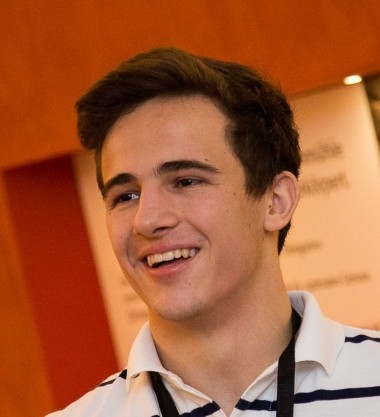A mobile application that can limit the possibility of getting infected with coronavirus was invented by a team led by Bulgarian Mihail Kovachev, who has been living in Austria. Inspired by similar Asian applications, young experts working in various fields decided to create an app that is compatible with European requirements. In an interview with Radio Bulgaria, Mihail Kovachev told us more about the new software:
 "Based on Bluetooth, GPS and other technologies, it shows the distance between people," Mr. Kovachev says in an interview with Radio Bulgaria. “For example, if we were standing 2 meters away from each other, smartphones would indicate this and keep track of how long we had been in contact. Based on this data, it is possible to calculate the probability of infection. If a person becomes ill and they were in close contact with other people then this information is sent to your phone. However, this happens completely anonymously and there is no way of knowing who the exact person is. All the data is stored locally on the phone and only when a person became sick,could the information be shared anonymously with other phones.”
"Based on Bluetooth, GPS and other technologies, it shows the distance between people," Mr. Kovachev says in an interview with Radio Bulgaria. “For example, if we were standing 2 meters away from each other, smartphones would indicate this and keep track of how long we had been in contact. Based on this data, it is possible to calculate the probability of infection. If a person becomes ill and they were in close contact with other people then this information is sent to your phone. However, this happens completely anonymously and there is no way of knowing who the exact person is. All the data is stored locally on the phone and only when a person became sick,could the information be shared anonymously with other phones.”
The application has already been approved by the Georgian authorities and is successfully working there. Based on symptoms detected, the user receives an automatic message from the government and he or she must confirm whether they were infected.
The creators of the application have also thought of those users who do not have a smartphone.
"We have already created keyholders and chip cards that can use the app without a smartphone," Mr. Kovachev says. "Initially they need to be scanned by a smartphone, but after that they start working on their own, collecting and storing information."
From a young age Mihail has been dreaming of helping people in need. “NOVID 20” is not the first mobile app created by the Bulgarian. When he was just 18years old he created a type of social network for universities. In order to realize it, he managed to persuade investors who provided the necessary financing.
"Through the social network, universities allow students to get to know each other. Everything is based on interests and information that people provide about themselves, so anyone can easily find a group of people with common interests to communicate with."
Mihail Kovachev now hopes that the new product of his team will be approved by the Bulgarian government and complement the application already created by another team and recently announced by the National Headquarters.
Mihail's plans for the upcoming Easter are work-related, but he will surely spend time with his family. He wished Bulgarians in the country and around the world to stay healthy and strong during this difficult period. Through Radio Bulgaria, Mr. Kovachev also expressed his gratitude to Bulgaria and its citizens for the way they have been managing with the crisis situation so far.
English: Alexander Markov
"Folklore is a need for humans and this need will not disappear just like that, " says Assoc. Prof. Dr. Natalia Rashkova - ethnologist and folklorist, university lecturer and researcher with a strong contribution to the study of..
Researchers from Bulgaria and abroad are gathering in Sofia for a scientific conference. The forum will be held on October 16 and 17 in the building of the Institute of Ethnology and Folklore Studies with Ethnographic Museum at the..
The Sofia Zoo has a new resident – an 11-year-old male snow leopard, BNT has reported. He comes from Nordens Ark Zoo, located in Bohuslän, Sweden and is named Araatan. Some time ago, a female leopard arrived from the Helsinki Zoo,..
The virtual space where you can find information about Bulgarian restaurants in Berlin, the services offered by Bulgarian craftsmen, as well as addresses..
How to preserve and maintain public trust in media - this is the central topic for participants in the Public Broadcasters..
From today until 28 October, Vidin will transform into a cultural hub to celebrate its patron saint's day - St Dimitar's Day (Dimitrovden). The new..

+359 2 9336 661
